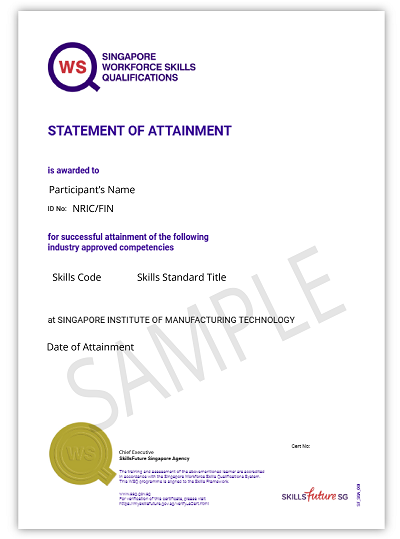Implement Fundamentals Of Corrosion And Corrosion Prevention (42 Hours)

Introduction
Corrosion is a multidisciplinary issue affecting almost all industrial sectors around the world. Losses due to corrosion are enormous and the economic impacts are significant, highlighting the dire need for a proactive approach to corrosion prevention and control. However, the lack of knowledge and experience in corrosion and corrosion protection among local technical managers, designers, engineers, and technicians remains one of the main obstacles to effective action in the industry.
This module covers the fundamentals of corrosion-related issues in the industry and is designed to equip participants with the basic fundamentals of corrosion and its evaluation. It mainly covers the following three key topics:
- Corrosion Fundamentals and Consequences
This includes the dangers associated with corrosion, different types of corrosion and their mechanisms, and the basics of the corrosion process. - Overview of Corrosion Control and Rectification
This session starts with an introduction to corrosion control methods, followed with details of surface preparation according to standards, coating application, quality control/inspection, and corrosion rectifications. Case studies on corrosion problems arising from coating failures will also be shared during classroom lectures. - Corrosion Characterisation and Testing
This section covers corrosion testing and characterisation techniques and procedures in industrial practices. Participants will get the opportunity to gain hands-on experiences via laboratory sessions and field tests commonly used for corrosion testing/investigations. Relevant international standards for field and laboratory accelerated tests will also be studied.
The comprehensive structure of this module incorporates classroom lectures, hands-on experimental work, and suitable case studies to represent a wider cross-section of the rudiments and evaluation of corrosion.
Who Should Attend
The module will be beneficial to technical managers, designers, engineers, and technicians dealing with corrosion-related issues at their respective fields of employment. Given the interdisciplinary nature of this subject, the personnel could be from any of Singapore’s industrial sectors including, but not limited to, oil and gas, marine, chemicals, food and beverages, manufacturing, infrastructure (power, water, roads, and transport), and construction, etc.
What Our Trainees Say
Learnt a lot from the course and the instructors were knowledgeable and great teachers.
Ms Zhang Jingyi,
Participant from Mar 2025 intake
About The Trainers
Dr Tan Yong Teck
Mr Andy Foo
Contact Us
- For technical enquiries, please contact:
Dr TAN Yong Teck,
Email: tan_yong_teck@a-star.edu.sg
- For general enquiries, please contact:
Mr GOH Chee Chien,
Email: gohcc@a-star.edu.sg
Registration
- Please register for this course through our online form: Course Registration Form for Public Classes.
- For the first question, please select "Modular Programmes (Standalone Modules)".
- Applicants will be placed on our waiting list if the course does not have an upcoming scheduled intake.
- When the next intake is confirmed, a confirmation email with payment information will be sent to applicants to finalise their participation.
Schedule
Module | Skills Course Reference Number | Next Intake(s)' Training Period
(Click on the dates to view their schedules) | Registration Status |
| TGS-2018502753 | The schedule for the next intake is still in the planning stage. |
Note: A*STAR SIMTech and A*STAR ARTC reserve the right to change the class/schedule/course fee or any details about the course without prior notice to the participants.
Announcement:
- From 1 Oct 2023, attendance-taking for SkillsFuture Singapore (SSG)'s funded courses must be done digitally via the Singpass App. More information may be viewed here.
- Participants will be provided with digital course materials when attending our courses. Please note that printed copies will not be available.
 : Full day
: Full day : Morning
: Morning : Afternoon
: Afternoon : Evening
: EveningQuick Link
- View the full list of modular programmes offered by A*STAR SIMTech and A*STAR ARTC.
A*STAR celebrates International Women's Day

From groundbreaking discoveries to cutting-edge research, our researchers are empowering the next generation of female science, technology, engineering and mathematics (STEM) leaders.
Get inspired by our #WomeninSTEM
.png?sfvrsn=843a4005_8)





